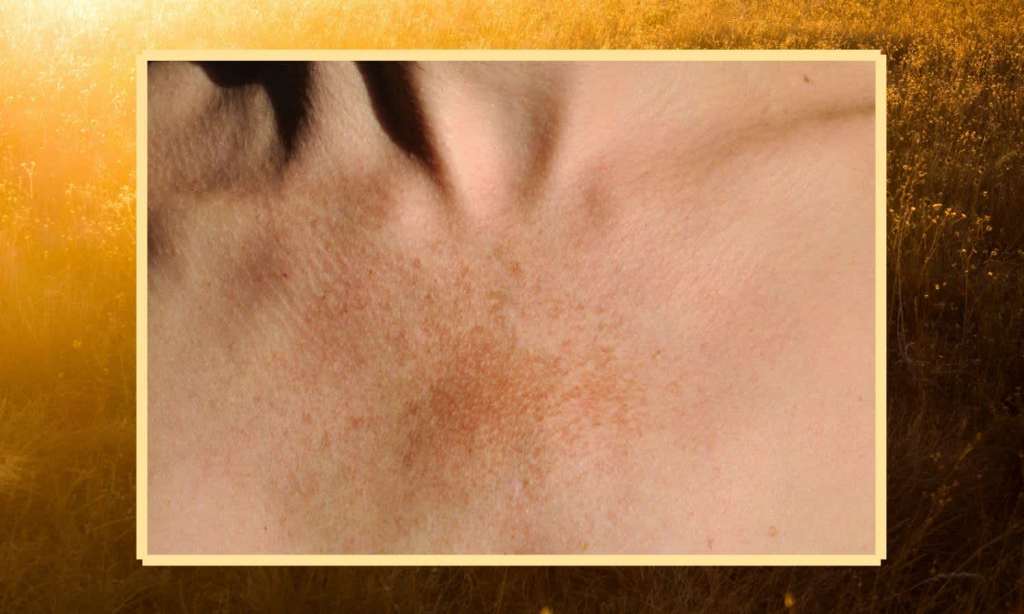Hyperpigmentation is a catch-all term but refers to a condition where your skin appears darker in certain areas. It can occur in small patches on your body or cover larger areas.
Just as hyperpigmentation can manifest in different ways on the body, its causes can also differ. For many people, the sun can stimulate their skin to make more pigment and cause hyperpigmentation. For others, it can be caused by inflammation from acne or from hormones specific to pregnancy.
To answer all of our hyperpigmentation questions, we enlisted the help of Dr Ginni Mansberg. Dr Mansberg has been a GP for over 20 years and has appeared on a number of TV shows including Embarrassing Bodies Down Under on Channel 9 and Medicine or Myth on SBS. She is also the co-founder of Evidence Skincare (ESK).
Working alongside other doctors as well as dermatologists and scientists, Dr Mansberg and her husband created ESK — a skincare range that is evidence-based, effective and easy to use. ESK was originally only accessible through medical practitioners but, since 2016, has been available to everyone.
What is hyperpigmentation?
“Hyperpigmentation refers to areas of skin in the body that are darker than the surrounding skin,” Dr Mansberg told The Latch. “It’s caused by pigment (the chemical that determines our skin colour and tanning) accumulating in certain patches of the skin and not others.”
There are a number of different causes of hyperpigmentation and a number of offshoots of the condition. For example, melasma is a common type of hyperpigmentation commonly experienced by pregnant women — although men can have it too.
“Melasma typically happens on the face and shows as patches of darkened skin, which are symmetrical on both sides of the face,” Dr Mansberg said. “The hormone progesterone plays a role plus we think sufferers have hypersensitivity to ultraviolet radiation.”
What causes hyperpigmentation?
“Making pigment in the skin is complex,” said Dr Mansberg. “At least 80 separate enzymes are involved in the process. There are quite a few possible causes for hyperpigmentation. Hyperpigmentation tends to be more common in older people, pregnant women and acne sufferers (who are mostly in their teens and twenties).”
Dr Mansberg has singled out the following causes of hyperpigmentation:
— Skin ageing coupled with accumulated sun exposure. Sun stimulates your skin to make more pigment. Older skin simply can’t clear it out of the skin effectively
— Following inflammation to the skin, most commonly from acne
— From the effects of hormones, for example, during pregnancy
— Due to certain conditions or medications
How to treat hyperpigmentation
“For anyone with hyperpigmentation, daily use of a broad-spectrum sunscreen is always strongly encouraged,” Dr Mansberg said. “Most treatments for hyperpigmentation (regardless of type) are the same and can be broken into three groupings.”
— In-clinic treatments: These include hydroxy acid peels, laser treatments and dermabrasion.
— Prescription creams: They take a while to work, can be irritating, can’t be used during pregnancy and are not recommended for long-term use.
— Cosmetic Skincare: According to Dr Mansberg, cosmeceutical skincare can be used long-term, is usually well-tolerated and can be used during pregnancy — with the exception of vitamin A products. One such product to try is ESK’s Enlighten, which has been formulated to target hyperpigmentation and age spots.
“Enlighten is a vitamin B3 and 4-n-Butylresorcinol based product,” said Dr Mansberg. “Vitamin B3 reduces the transport of melanin (from melanocytes, where it is created to keratinocytes where it is deposited).
“4-n-Butylresorcinol is an ingredient which inhibits Tyrosinase, which is the main building block of melanin. While ingredients that target pigmentation in this way are regarded as the most effective, they are also slow-acting and take two to three months to start working. It is also the only tyrosinase inhibitor which has a good safety profile and can be used long term.”
When it comes to preventing hyperpigmentation, it’s all about the daily application of sunscreen. Lather yourself in SPF every single day, no matter what you have planned for the day. And, while you should be wearing sunscreen all year round, this is a good reminder as the warmer months are upon us.
“It sounds cliché, but sunscreen — specifically broad-spectrum sunscreen — is the best way to prevent sunspots and exacerbating current pigmentation,” said Dr Mansberg.







